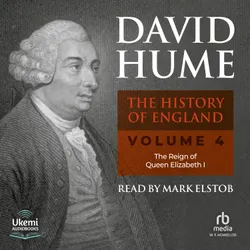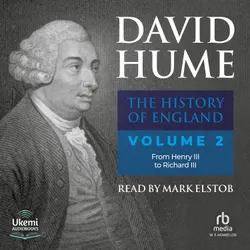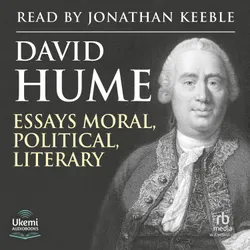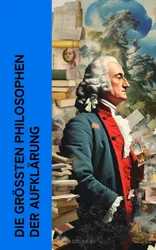In "An Enquiry Concerning the Principles of Morals," David Hume presents a seminal exploration of moral philosophy grounded in empiricism and human sentiment. This work marks a significant development from his earlier writings, such as "A Treatise of Human Nature," where Hume meticulously dissects human emotions and their influence on our ethical judgments. Through a nuanced and elegant prose style, Hume argues that morality is rooted in the impressions of human experience and that reason serves merely as a slave to our passions. Engaging with the philosophical context of the Enlightenment, Hume distinguishes between the moral and the natural sciences, emphasizing the subjective nature of moral evaluations while still acknowledging their universal applicability across cultures. David Hume (1711–1776), a pivotal figure in the Scottish Enlightenment, was deeply influenced by the sceptical traditions of Descartes and Locke, as well as by the burgeoning empirical approaches to knowledge. His philosophical inquiries were often prompted by his dissatisfaction with the rationalism of his time, leading him to explore how feelings and sociability inform our moral frameworks. The social context of 18th-century Europe, marked by shifting paradigms of thought, significantly influenced Hume's quest to establish a more grounded and human-centered moral philosophy. "An Enquiry Concerning the Principles of Morals" is essential reading for anyone interested in ethics, philosophy, and the foundations of moral reasoning. Hume's insights into the interplay between emotion and reason in moral judgments not only challenge traditional views but also form the basis for contemporary discussions in moral philosophy. This work invites readers to reflect on their own moral principles and the human experiences that shape them, making it a timeless contribution to philosophical literature.

The Greatest Books of Spiritual Wisdom : The Age of Reason, As a Man Thinketh, The Holy Spirit…
Martin Luther, John Stuart Mill, David Hume, James Allen, Ralph Waldo Emerson, Andrew Murray, Thomas Paine, Ludwig Feuerbach, G. K. Chesterton, Friedrich Nietzsche, Thomas à Kempis, Leo Tolstoy, Charles Spurgeon, Wallace D. Wattles, Prentice Mulford, St. Teresa of Ávila, Saint Augustine, Florence Scovel Shinn, H. Emilie Cady, Gregory of Nyssa, Pope Gregory I, Athanasius of Alexandria, Basil the Great, John of Damascus, Saint, Brother Lawrence, Arthur Pink
book
The History of England Volume 6 : Containing the Commonwealth, Charles II and James II
David Hume
audiobook
The History of England Volume 5 : James I and Charles I
David Hume
audiobook
The History of England Volume 4 : The Reign of Queen Elizabeth I
David Hume
audiobook
The History of England Volume 3 : From Henry VII to Mary
David Hume
audiobook
The History of England Volume 2 : King Henry III to King Richard III
David Hume
audiobook
The History of England Volume 1 : From the Invasion of Julius Caesar to King John
David Hume
audiobook
An Enquiry Concerning the Principles of Morals and Other Works
David Hume
audiobook
Essays, Moral, Political, and Literary
David Hume
audiobook
50 Meisterwerke der Philosophie : Metaphysik, Das Gastmahl, Bhagavadgita, Tractatus logico-philosophicus, Kritik der reinen Vernunft, Also sprach Zarathustra, Selbstbetrachtungen von Marcus Aurelius
Ludwig Wittgenstein, Edmund Husserl, Karl Marx, Søren Kierkegaard, Friedrich Nietzsche, Ralph Waldo Emerson, John Stuart Mill, Georg Wilhelm Friedrich Hegel, Friedrich Schelling, Johann Gottlieb Fichte, Immanuel Kant, John Locke, Montesquieu, Jean Jacques Rousseau, David Hume, Gottfried Wilhelm Leibniz, Baruch Spinoza, Konfuzius, Laotse, Platon, Xenophon, Aristoteles, Marcus Tullius Cicero, Seneca, Epiktet, Marc Aurel, Plotin, Thomas von Aquin, Nicolaus von Cues, Erasmus von Rotterdam, Niccolò Machiavelli, Tommaso Campanella, Martin Luther, Giordano Bruno, Samuel von Pufendorf, Abbé Castel de Saint-Pierre, Michel de Montaigne, René Descartes, Francis Bacon, Blaise Pascal
book
Philosophie der Aufklärung : Die wichtigsten Werke von Immanuel Kant, John Locke, Rousseau, Voltaire, Denis Diderot, David Hume, Leibniz, Johann Gottfried Herder
Johann Gottfried Herder, Montesquieu, David Hume, Denis Diderot, Jean-Jacques Rousseau, John Locke, Thomas Hobbes, Benjamin Franklin, Francis Bacon, Immanuel Kant, Baruch Spinoza, Isaac Newton, Freiherr Gottfried Wilhelm von Leibniz, Voltaire, René Descartes
book
Die größten Philosophen der Aufklärung : Neues Organon, Kritik der reinen Vernunft, Der Gesellschaftsvertrag, Candide, Monadologie, Mathematische Principien der Naturlehre
Jean-Jacques Rousseau, Voltaire, Denis Diderot, David Hume, Johann Gottfried Herder, John Locke, Thomas Hobbes, Benjamin Franklin, Francis Bacon, Immanuel Kant, Montesquieu, Baruch Spinoza, Isaac Newton, Freiherr Gottfried Wilhelm von Leibniz, René Descartes
book
